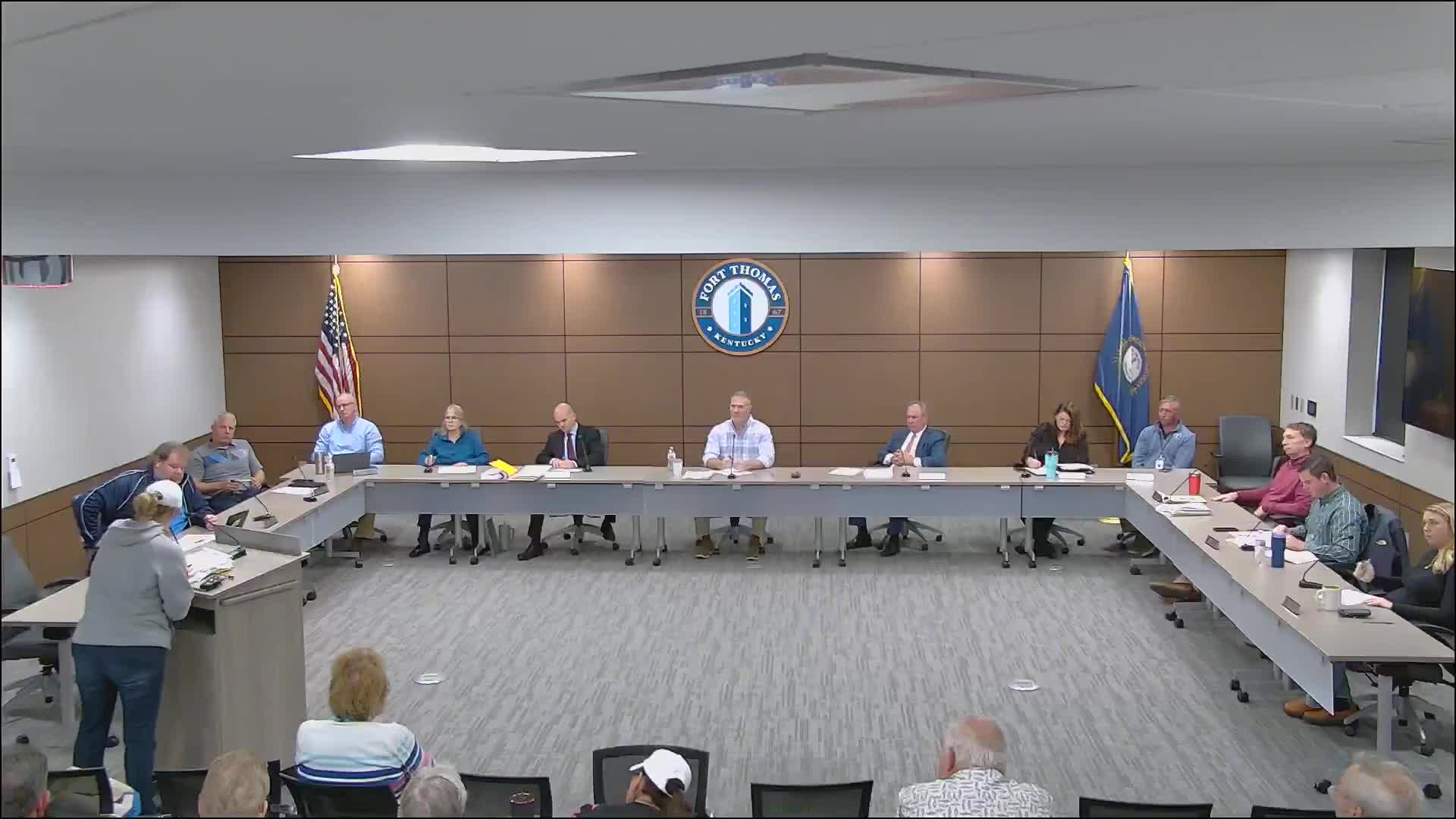Fort Thomas residents press council over duplicate accounting entries, $277,721 pension payment and calls for forensic review
Get AI-powered insights, summaries, and transcripts
Subscribe
Summary
Residents, council members and staff discussed duplicate journal entries in Fort Thomas— Springbrook accounting system, a $277,721.51 pension-related payment recorded in March and related amendments to the city budget during public comment at a council meeting.
Residents, council members and staff discussed duplicate journal entries in Fort Thomas— Springbrook accounting system, a $277,721.51 pension-related payment recorded in March and related amendments to the city budget during public comment at a council meeting.
City staff told residents the error was a duplicated journal entry: one transaction was posted Feb. 4, a second duplicate was posted March 13 and the March entry was reversed once discovered. Staff said the reversal is visible in the general ledger history and that the duplicate was not deleted but reversed. Staff also attributed part of the detection problem to the previous finance director—s illness and miscommunication between that individual (working from home) and in-office clerks who perform monthly reconciliations.
Why it matters: residents said the duplicate entries and late audit should have been red flags. Public commenters tied the entries to a $277,721.51 payment they said appeared in March 2025 and to discrepancies between a fiscal-year closing balance and the next year—s opening balance. Those discrepancies, speakers said, contributed to concern that the amended budget presented to council did not fully disclose pension-related liabilities.
Resident Steph Chalk, 21 Lafayette, described the mismatch between closing and opening balances and criticized the timing of the audit: "It's just not conceivable that that would happen. But when you have an audit that's two years late, shouldn't there be a red flag that says something's going on here?" Chalk said council should identify early warning signs and asked whether the city—s reserves would be reported at a later meeting.
Attorney and resident Steve Meggerly of Green Street urged the council to explore recovery options through existing surety bonds required by local code. "If you are looking for a means to recover those monies, I would respectfully suggest that you look at that surety bond that the city treasurer has posted in the amount of $125,000," Meggerly said, adding that bond limits for city officers have not been updated in decades and recommending they be increased as the city budget has grown.
Several speakers urged a structured response: a formal root-cause analysis, an ad hoc citizen committee that could lend expertise, a forensic accountant to review prior years and the hiring of both an HR consultant and labor-and-employment counsel to evaluate personnel processes and potential exposure. One speaker proposed reviewing whether annual performance reviews required by contract have been completed.
Elizabeth Allegrini, 45 Lockwood Place, told the council that trust in the administration has been eroded: "It is a loss of trust, and I don't care. That's what's going throughout the community right now. Can we trust the administration right now in anything that they say?" She said council members should insist on adherence to policy and consider whether resignations or other actions are required.
Not all public comments called for immediate punitive action. Fred Otto of Rossford Avenue defended city employees and warned of unintended consequences if the council—s review leads to abrupt staffing changes: "I don't think there was criminal intent. I just don't think there is criminal intent from anyone in this room or in city administration," he said, and cautioned that reducing overtime without adding staff could increase long-term costs.
What staff said about the budget impact: staff characterized the amended budget changes as additional appropriations for personnel expenditures that did not necessarily equal final expenditures at year-end. Staff said that because more was budgeted for the line item than was spent, closing and audit adjustments can change reported balances; staff invited specific questions to be submitted by email and said the council would address remaining questions at a follow-up Wednesday meeting.
Requests and next steps raised at the meeting included: a root-cause analysis with named owners and due dates, a forensic accounting review of recent years (speakers suggested up to 10 years), an HR review and labor counsel to assess liability exposure, updating bond/surety amounts for city officers, and clearer internal controls and monthly reconciliation procedures.
Provenance: topic introduced at 00:00 when a resident asked about Springbrook and duplicate entries, and the discussion as presented concludes in public comment and staff responses through the 21:14 time range. The transcript shows staff describing the reversal of the March duplicate entry and multiple residents calling for forensic and HR reviews.
Ending: Council members directed remaining technical questions to be addressed at a follow-up meeting and agreed staff would respond to emailed questions. The council later voted to enter an executive session to discuss personnel matters (see separate item).
